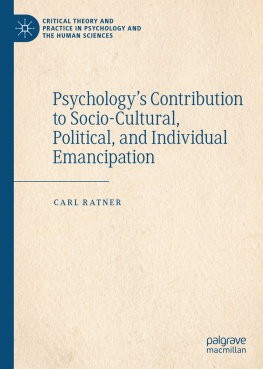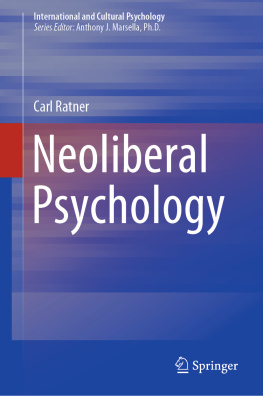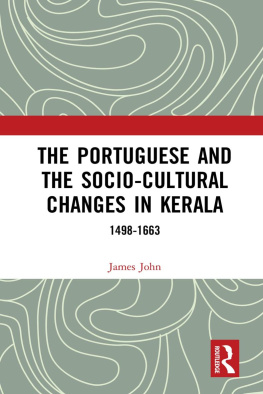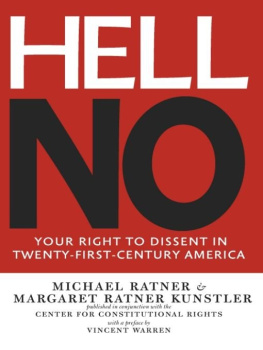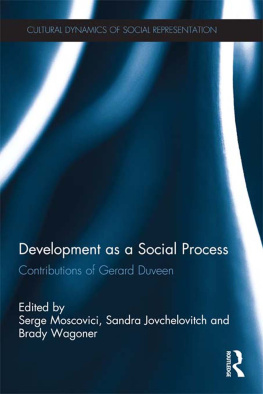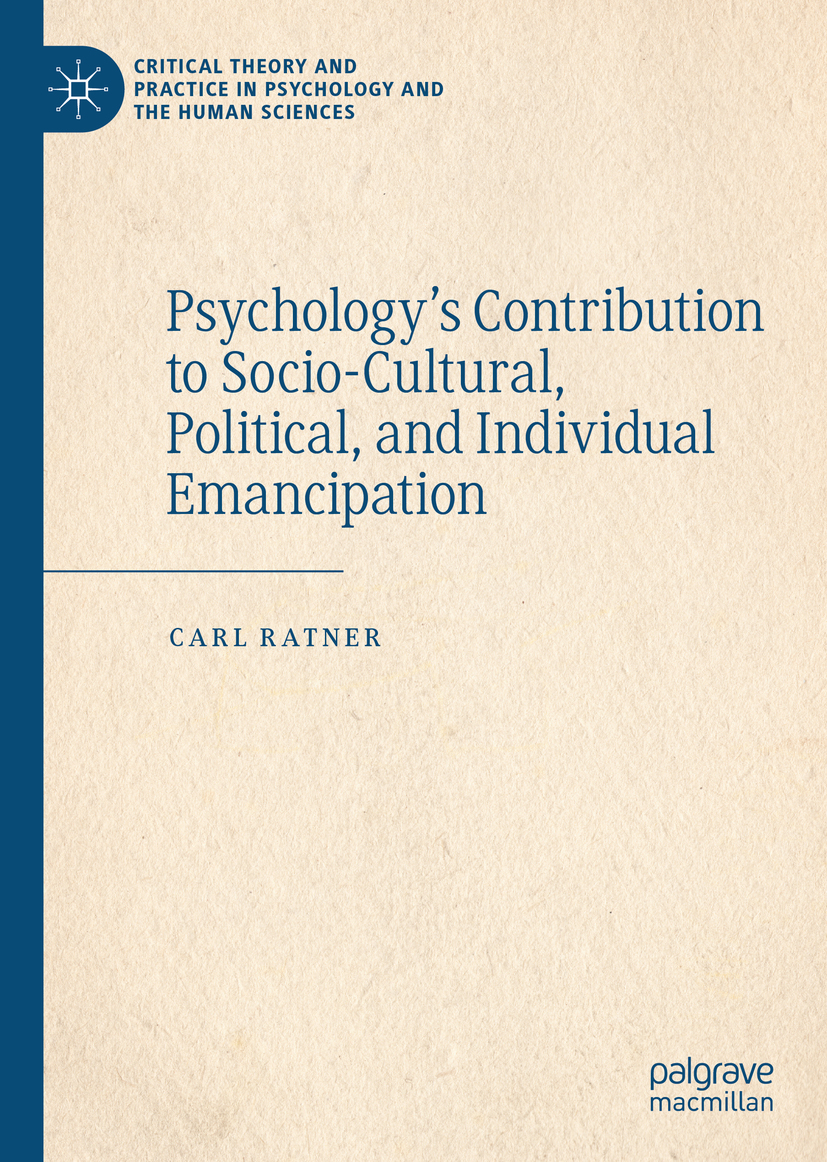Critical Theory and Practice in Psychology and the Human Sciences
Series Editor
Tod Sloan
Department of Counseling Psychology, Lewis & Clark Graduate School of Education & Counseling, Portland, OR, USA
This series offers titles that challenge the dominant models of psychological science and their applications in order to foster social transformation toward equity and justice. With this common aim, various forms of critical and liberation psychology have emerged over the last few decades, drawing on neo-Marxism, poststructuralism, critical hermeneutics, feminist psychoanalysis, queer studies, and postcolonial thought. Critiques grounded in these perspectives reveal the ideological functions of mainstream theories and the therapeutic, organizational, and educational practices that flow from them. Titles in this series explore these links between theory and practice and argue for progressive alternatives. Critical Theory and Practice in Psychology and the Human Sciences publishes bold and innovative monographs that advance critical psychology and propose socially transformative practices. The series welcomes submissions from a range of theoretical perspectives and disciplinary orientations, including clinical psychology and counseling, social work, community psychology, organizational development, and activism.
More information about this series at http://www.palgrave.com/gp/series/14941
Carl Ratner
Psychologys Contribution to Socio-Cultural, Political, and Individual Emancipation
Carl Ratner
Institute for Cultural Research and Education, Trinidad, CA, USA
Critical Theory and Practice in Psychology and the Human Sciences
ISBN 978-3-030-28025-3 e-ISBN 978-3-030-28026-0
https://doi.org/10.1007/978-3-030-28026-0
The Editor(s) (if applicable) and The Author(s), under exclusive licence to Springer Nature Switzerland AG 2019
This work is subject to copyright. All rights are solely and exclusively licensed by the Publisher, whether the whole or part of the material is concerned, specifically the rights of translation, reprinting, reuse of illustrations, recitation, broadcasting, reproduction on microfilms or in any other physical way, and transmission or information storage and retrieval, electronic adaptation, computer software, or by similar or dissimilar methodology now known or hereafter developed.
The use of general descriptive names, registered names, trademarks, service marks, etc. in this publication does not imply, even in the absence of a specific statement, that such names are exempt from the relevant protective laws and regulations and therefore free for general use.
The publisher, the authors and the editors are safe to assume that the advice and information in this book are believed to be true and accurate at the date of publication. Neither the publisher nor the authors or the editors give a warranty, express or implied, with respect to the material contained herein or for any errors or omissions that may have been made. The publisher remains neutral with regard to jurisdictional claims in published maps and institutional affiliations.
This Palgrave Macmillan imprint is published by the registered company Springer Nature Switzerland AG.
The registered company address is: Gewerbestrasse 11, 6330 Cham, Switzerland
To Jenny and Matthew, a wonderful couple who make the world a better place.
Preface: Transforming psychology, Transforming Psychology, Transforming Society
This book seeks to make the discipline of Psychologywhich includes academic Psychology, psychotherapy, educational psychology, special needs psychologyrelevant to understanding and correcting urgent social and psychological problems of our era. I seek to make this understanding and practice (i.e., praxis ) integral, or built into, Psychology. In other words, Psychology contains the tools for this praxis within its theories, methodologies, and interventions. Psychological theories, methodologies, and interventions are emancipatory. Social-psychological improvement then informs psychological workpsychological theory, methodology, interventions. Understanding and practicing social-psychological improvement will be performed in the course of doing Psychology.
Transforming Psychology requires reclaiming and reformulating its theories, methodologies, and interventions. Transforming the science of Psychology requires transforming its understanding of psychology. Psychological phenomena are reconceptualized as cultural phenomena.
An emancipatory Psychology is a cultural Psychology that researches cultural-psychological phenomena. This makes psychological phenomena into windows into culture/society. Psychological phenomena are formed in macro cultural factors by cultural processes which impart a cultural form to psychology. Formulated in this way by scientific, cultural Psychology, psychological phenomena reflect and reveal culture; they critique culture; and they call for improving culture.
Emancipation becomes a component of psychological phenomena and scientific Psychology. Psychological science, psychological phenomena, and emancipation are integrated into a triple helix.
This will correct Psychologys historic errors of (a) ignoring social issues and (b) psychologizing social issues by reducing them to abstract, psychological principles. These complementary errors have stunted Psychologys scientific potential as well as its sociopolitical potential for improving social life and psychological functioning.
Explaining the vast extent of this reclaiming and reformulating of Psychologys elements shall occupy the first half of this book. The second half shall utilize refurbished Psychology to prove its mettle by analyzing and improving social movements that aim at social and psychological emancipation. This is one way that a refurbished Psychology can make important and distinctive contributions to social, political, and psychological enrichment.
Carl Ratner
Trinidad, CA, USA
United States Declaration of Independence, July 4, 1776
We hold these truths to be self-evident, that all men are created equal, that they are endowed by their Creator with certain unalienable Rights, that among these are Life, Liberty and the pursuit of Happiness.--That to secure these rights, Governments are instituted among Men, deriving their just powers from the consent of the governed, --That whenever any Form of Government becomes destructive of these ends, it is the Right of the People to alter or to abolish it, and to institute new Government, laying its foundation on such principles and organizing its powers in such form, as to them shall seem most likely to effect their Safety and Happiness. Prudence, indeed, will dictate that Governments long established should not be changed for light and transient causes; and accordingly all experience hath shewn, that mankind are more disposed to suffer, while evils are sufferable, than to right themselves by abolishing the forms to which they are accustomed. But when a long train of abuses and usurpations, pursuing invariably the same Object evinces a design to reduce them under absolute Despotism, it is their right, it is their duty, to throw off such Government, and to provide new Guards for their future security.

